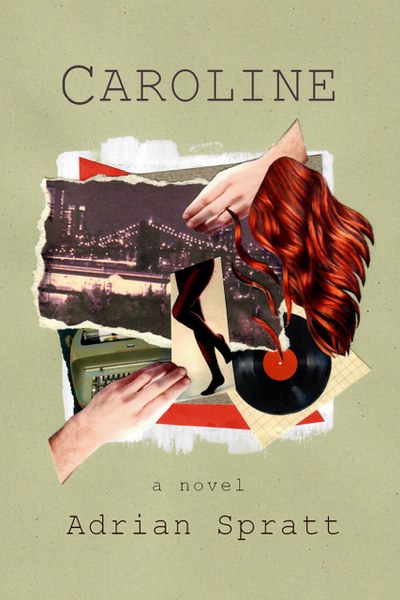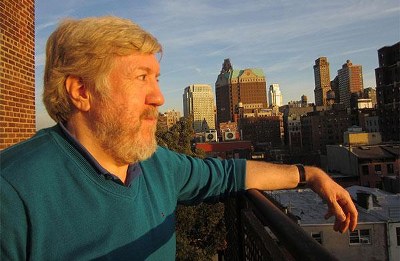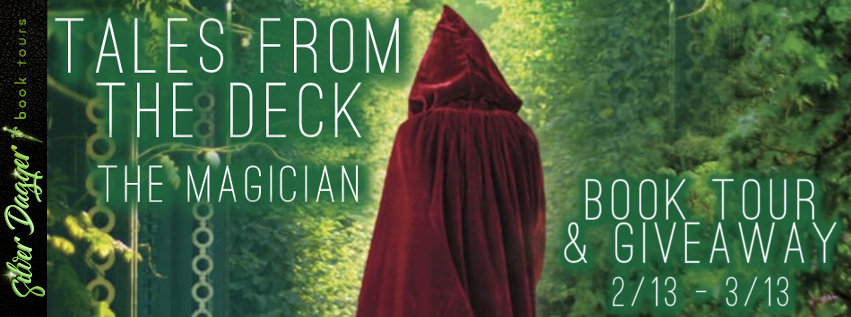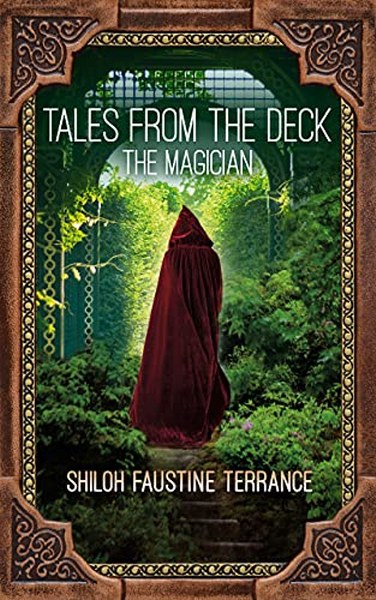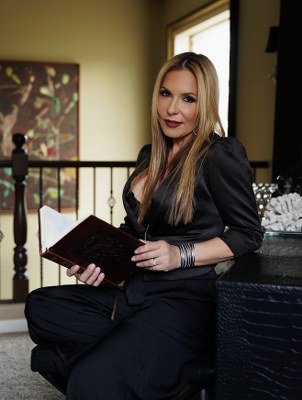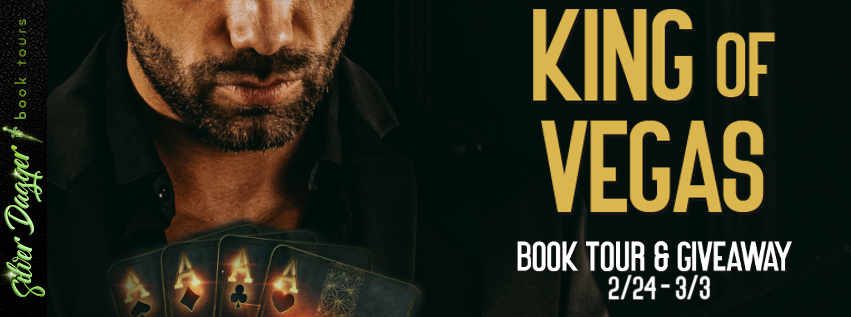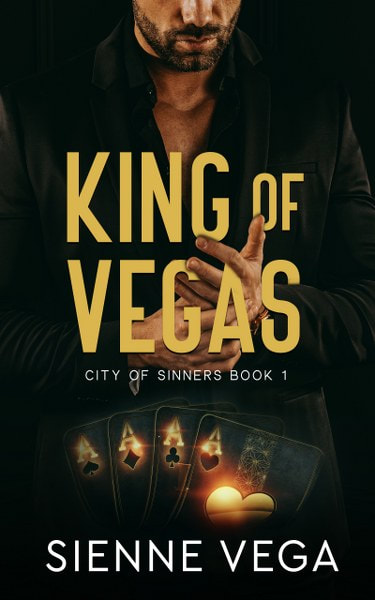Caroline
by Adrian Spratt
Genre: Historical Thriller, Literary Fiction
PROLOGUE
Outside the West Village restaurant where I’d had dinner with an old friend, I unfolded my white cane, said goodnight and set off for the Sheridan Square subway station. As I approached the next corner, a woman came to my side and asked, “Can I offer assistance?” She assumed I might need help crossing the street. Actually, I was going to turn toward the subway. She said she was going that way and that her offer stood. I took her arm, and we sped along West 4th.
Hints of spring had appeared after a long winter. Even a first-time visitor to New York would have detected the atmosphere of relief and renewal. An image came to me of lit street lamps, neon signs and car headlights staring down the night. Defiance was in the air, the kind that says life doesn’t have to be as bleak as winter insists.
“I’m still new to the city,” the woman said. She told me she’d come from Kansas to do graduate work at NYU. “What about you?”
“I’m a lawyer,” I said. “I started out in criminal law, but most of my career has been in environmental.”
She told me her name was Taylor. I told her mine was Nick.
Then she said, “I suspect I wouldn’t make a very good lawyer. What do you think?”
“What do I think! I think I hardly know you.”
“They say you get a sense of someone after two minutes. I believe there’s a lot to that. Don’t you?”
“I can tell you’re articulate. That helps if you want to be a lawyer.”
“Words, words. Everyone does words today, even if they can’t spell.”
“Can you spell?”
“That I can.”
“Okay, now you have two qualifications.”
We stepped onto the island in the middle of Sheridan Square, site of my subway entrance, but she kept going, taking a left down Seventh Avenue. Normally, I would have stopped and returned to the subway steps, but, intrigued, I went along with her unannounced detour.
She told me she was studying the relationship between the actions of statesmen and what they wrote and said before taking on leadership roles. I surmised there must be an academic cottage industry spawned by former President Barack Obama’s autobiographies. It was a world away from the one I inhabited of clean-up sites, consent decrees, arguments with our counterparts at the Justice Department when they balked at suing a polluter.
“You must make a lot of enemies in your job,” she said. “How does that make you feel?”
“I like to think of myself as peacemaker, but it seems I have a talent for antagonizing people that belies it.”
“That tells me you don’t know who you are.”
After a moment’s reflexive annoyance, I said equably, “I know I’m a sack of contradictions.”
We crossed yet another street. She said, “Are you up for a bite or something? I know a place.”
My friend and I had finished dinner earlier than usual, and Alison, my wife, had said she’d been looking forward to a rare evening on her own. That I’d extended the evening with a young woman stranger would take some explaining, but she knew how I acted on whims.
“Okay,” I told Taylor, “let’s go.”
“Just along here,” she said, turning right.
My office shoes sent cracks against the deserted street’s quiet. She must have been wearing athletic footwear because her steps landed softly. An overhead image came to me of a gray-haired man walking side by side with this young woman. In my mind’s eye, she was blonde. Well, yeah. It was an image recreated from some movie in my childhood, when I’d had vision.
The couple reached a restaurant entrance, paused, turned inside. Then the overhead camera switched off. I became myself again, responding to the maître d’ and sizing up the interior: small, busy but unflustered.
At the table, having declined the maître d’s offer to hang up her coat, she slung it over the back of her chair. “I have to be careful with money,” she explained. “Tipping to get my coat back is one expense I can do without.”
I was glad I didn’t have to deal with a coat. When I’d left home that morning, the air was brisk but buoyant with the promise of a spring day.
As she seated herself diagonally at my side, I said, “I have to tell you I’m kind of full. You met me on my way home from dinner with a friend.”
“They won’t mind. It’s not like there’s competition for tables right now. But I haven’t eaten, so I’ll be ordering something. An appetizer. That will do me fine.”
I told the waiter I wanted just a decaf, and he showed no irritation. In my mind, I said I’d leave a good tip whatever we ordered. Maybe he picked it up by extrasensory perception. Sign of a good waiter.
“So,” she said, sounding awkward now that we’d committed to time together, “how did you decide on environmental law?”
“Right after law school, I did criminal defense. Then an opportunity came up at the EPA. One of those things you don’t plan for that turns your life around.” Catching myself thinking how much emotional territory that abbreviated résumé covered, I put on a rueful grin. “But enough on law. It’s after hours.”
“Oh, sorry, no more law questions. But let me ask you this. Where I come from, people blame environmentalists for jobs leaving America. I disagree, but I don’t feel I know enough to have an opinion.”
Our coffees arrived, followed quickly by her salad. Discreetly, I touched the tablecloth and unexceptional silverware. Sensing the space between tables would let us speak without being overheard, I decided to air misgivings I rarely admit. After all, it was after hours.
“Keeping the environment clean creates jobs, but I’m guessing the people you talk to don’t want that kind of change. What troubles me more is that when we drive out the industries that cause the worst pollution, it means we’re exporting it to countries more desperate than ours.”
“Do you believe that? I mean, if you do, how could you continue doing what you do?”
“Before my time at the EPA, the fires on Cleveland’s Cuyahoga River and death sites like Love Canal scared everyone, but those breakthrough battles have been fought and won. What’s left is huge, but it can be gray. So, yes, I’m proud of the work we’ve done and my own small part in it. But are the results all positive?” I shrugged. “No collective human activity does unmitigated good.”
“You’re a pessimist,” she said. “I took you for a hopeful person.”
“During those first two minutes?”
“Exactly.”
“I take it you’re an optimist.”
“See, you can tell lots of things about someone you’ve just met. What else do you know about me?”
I doubted the wisdom of answering, but I went ahead anyway. “You have strong opinions, but you listen to others.”
“That’s true.”
“You’re a kind person.”
“I try.”
“All that sounds rather basic to me,” I said. “I thought this two minutes of yours was about something more subtle—more nuanced, as people say today.”
“I can tell certain things about you that might or might not be subtle.”
I almost groaned, having no desire to expose myself either to analysis or teasing. “Okay, like what?”
“From the quality of your suit and tie, I know you’re comfortably off. Oh, forgive me. That’s a visual thing.”
“Are you sure about that, Sherlock? By the way, what is the feminine for Sherlock, do you know?”
She ignored my frivolity. “I was apologizing for mentioning something you can’t share.”
“How do you know I can’t share?”
“Okay, I guess I don’t know. I mean, you can know what you’re wearing, of course, but I don’t see how you can know what I am.”
“Outside you were wearing a trim coat, not a windbreaker or something else I’d expect from a student.”
She sighed. “You’re better at this two-minutes thing than me.”
“I doubt it.” Then I said, “I don’t suppose you’re up for some wine. It looks like we’re not leaving soon, and I feel we should pay a little more rent for this table.”
“Love some. How about a half carafe of the house red or white?”
We settled on the red, which arrived with the same courtesy as before. The waiter poured.
Returning to her two-minutes theme, I said, “What else have you picked up about me, visual or otherwise?”
“I’ve annoyed you. I’m sorry.” She touched my hand, a fleeting gesture, gone almost before I’d noticed.
“Go ahead,” I said, “speculate away.”
“Under that debonair exterior,” she said, “I sense sadness. Maybe I’m picking up that you’re lonely.”
I remembered I wasn’t wearing my wedding ring. I’d done so for several months after the ceremony, but it irritated my skin and Alison had graciously conceded it was best left at home. After tonight, she might think again.
Doing one of those heaving sighs that lifts the shoulders, I told Taylor, “Perhaps we’d better stop there.”
She turned the subject to herself. “Would you say I’m lonely?”
“After all, you’re an attractive young woman with an hour or two to spare for a man twice her age.”
She answered with a halting, “Ye–es.” Then she said, “What makes you say I’m attractive?”
“You act on impulse and live in the moment.”
“You know me better than I know myself.”
“I know you hardly at all.”
“So you said. But I’m finding it fascinating how much you can know. I’ve never spent any time with someone who can’t see. It made me a little scared.”
“And tonight you decided to face up to your scare.”
“If you want to put it that way.”
I could have said, “Then how would you put it?” but I knew about acting on impulse. I doubted Taylor had seen me in the street and said to herself, “Time to get over that phobia.” Her explanation had probably come to mind as we meandered around the West Village.
“So, Taylor, are you about to say I have super-developed perception?”
“The way you put that, I’d better not.”
That brought a smile to my face, as her voice betrayed it had to hers.
After taking a sip of wine, she said, “Don’t you think we’re all freaks?”
“Freaks?”
“That we’re all—I don’t know—different. If we admitted it, wouldn’t it make us more tolerant?”
Her word put me off, but it did go to the heart of what she’d been getting at.
“Tolerant maybe,” I said. Then my inner trickster piped up. “But given a choice between stopping in the street to talk to someone and getting home, I usually choose home.”
“Tonight you didn’t.”
Having made the mistake of trying to hide my amusement behind a sip of wine, I spluttered into the glass. But I recovered with what I considered aplomb. “I decided it was high time I overcame my fear of talking to women who accost me in the street.”
“Touché,” she said, bumping my glass with hers. “So, women ‘accost’ you, as you say, all the time?”
“Absolutely. But what I’m really saying is that people of all ages and genders offer help.”
“Hope for humanity,” she said.
“Depends on how the help is offered.”
“Did I do it right?”
“Perfectly. You gave me a choice. You didn’t grab my arm. You didn’t ask a stupid question like, ‘Do you know where you’re going?’”
“Why is that a stupid question?”
“Would I be out and about if I didn’t know where I was going?”
“You must experience a lot of stupidity.”
“And a lot of thoughtfulness.”
“So you are an optimist.”
Her knee touched mine. It stayed.
“I’m not lonely in the traditional sense,” she said, turning her earlier question back on herself. “But I don’t seem able to settle down with one person. That’s a form of loneliness, don’t you think?”
“How old are you, Taylor?”
“Twenty-six.”
“I was the same at your age. I mean, I found it unsettling to keep starting and ending relationships. But I also found it exciting.”
“Exciting?”
“I’d long felt insecure about women’s feelings for me. All of a sudden, that changed. I’m guessing you’ve never had doubts about your attractiveness.”
“In middle school and maybe into high school. Good grades didn’t make for popularity.”
“Just that?”
“Okay, and I was flat-chested till later than most girls. You don’t want anyone to notice at that age, but you feel lacking. And I do mean lacking. It feels like a moral failing. But it’s weird that I can’t settle on one person. It means I do cruel things without meaning or wanting to.”
“Like what?”
“Leading guys on.”
“Sure you aren’t still in high school?”
“You’re saying I’m immature. But I don’t lead guys on to make them crazy. I get really, really involved in someone, but then something or someone else takes over.”
“It’s good you know you have the power to hurt.”
“What do you mean?”
“There are people who think no one cares enough about them to be hurt by what they do.” She couldn’t know how hard-earned that knowledge was.
“Oh, I know people care.”
“Well, if settling down with someone is something you hope for, it should happen. If it’s only an ideal you’ve picked up second-hand, who knows?”
“I don’t even know if I’m into women or men.”
I snorted. “Aren’t you being a tad too faddish?”
I sensed her knee’s touch get lighter. Then to my relief, she laughed.
“I suppose I don’t see a long-term relationship with a woman in my future.” Her knee’s pressure returned.
“Process of elimination,” I said. “A start.”
The half carafe yielded two smaller glasses. This time she poured.
I said, “I should be going soon. Tomorrow is another long day.”
“And I’ve got a bunch of studying to do. I’ll get our waiter’s attention.” As she spoke, her voice moved to the side, which told me she was signaling for the check. Then she said, “I guess loneliness is on my mind because I worry that if I’m not in a relationship after the youthful bloom has gone, I might find myself alone and left behind. In Jane Austen’s day, a woman who wasn’t married by my age had poor prospects.”
“In Jane Austen’s day, you had to follow the map laid out for you. It’s sad when anyone today has unerringly followed the course mapped out for them.”
“How did you avoid doing that?”
“Ah, one benefit of disability. No good maps. You’ve made sure you won’t follow someone else’s map, either.”
“How did I do that?”
“By coming to New York from Kansas, for one thing. For another, by plucking a stranger like me out of thin air and sharing these two hours with him.”
The check arrived. I thought about splitting it, telling her I recognized her as equal, but our finances weren’t. She graciously consented to my paying the bill on condition I let her cover the tip. I hoped she honored my unspoken promise to the waiter.
“Taylor, I’m curious about the appearance of the woman I’ve been having this conversation with. Tell me something about yourself.”
“So, you didn’t learn everything about me in those first two minutes.”
“I already told you so.”
She proved to be “a Midwest farmer’s daughter,” as she put it. “Fair hair, blue eyes. Also, um, pointed chin, small nose. I have an unsightly bump on the bridge of my nose. One day when I’m rich, I’ll have a plastic surgeon fix it.”
Seeing me start, she said, “You disapprove of plastic surgery?”
I pushed down a memory for later. “No, I don’t. Cosmetics matter.”
I took the risk of touching her hair. She slightly dipped her head toward me, as if to signal consent. I brushed my thumb against her cheek, a physicality to remember her by.
Outside, I paid the price for having opted against wearing a coat that morning. The air had turned colder, sharpened by a night wind off the Hudson.
This time we stopped on reaching the steps down to my station. I considered giving her my business card or asking for her number. I did neither. I’d bragged to her that I’d followed my own map. In following it, I’d done harm. As Taylor said about herself, I hadn’t meant to, but it didn’t free me from culpability. At least I’d learned a lesson or two, and one was to let this brief intersection of our lives stay just that.
She, too, avoided the false promise of “Let’s get together again.” Instead, saying, “Thank you for a lovely time,” she kissed my cheek and walked back down Seventh Avenue.
Turning to the subway steps, I gave in to the pull of the past.
Adrian Spratt practiced law for twenty years, mainly in consumer protection, before returning to his first love, fiction writing. He graduated from Amherst College and earned his law degree from Harvard. Retinal detachment led to his loss of vision when he was thirteen. Today, he lives in Brooklyn with his wife, the artist and photographer Laura Rosen. His website, where he maintains a blog and showcases selected stories, essays and memoir excerpts, is www.adrianspratt.com.


